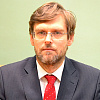Project: The Sanctions Against Russia: Areas of Escalation and Counteraction Policies
The Russian International Affairs Council has been studying the sanctions problem in depth since 2017. The RIAC sanctions work involves preparing analytical materials, monitoring legislations of initiating and target countries, and keeping an eye on restrictive measures implemented, creating databases, working with the expert community in Russia and abroad, and developing educational programs, including a specialized course at Moscow State Institute of International Relations under the Ministry of Foreign Affairs of the Russian Federation.
Analytics (81)
Why do countries that initiate sanctions reduce them? How long-term and sustainable is such a process?
ShortThe concept of secondary sanctions remains vague. It has acquired not only and not even so much a legal or political character, but a psychological one
ShortAnalytics
Interview (2)
Interview with Elena Dovgan, UN Special Rapporteur on the Negative Impact of the Unilateral Coercive Measures on the Enjoyment of Human Rights
ShortInterview
Comments (3)
At the SPIEF Ivan Timofeev, an International affairs analyst, has explained how Moscow has been dealing with the impact from Western sanctions.
ShortThe big question is whether congresspeople should spend their political capital on promoting a bill that needs so many amendments at a time when Russia as a topic for discussion…
ShortWe have to re-evaluate the picture of the world that has appeared in the last five years, which implies that Russia’s interactions with Europe are associated with substantive…
ShortComments
Expert columns (6)
Russia’s experience shows that despite the damage to the economy and some imbalances, it is possible to adapt to large-scale sanctions
ShortSwitching payments for Russian gas deliveries into rubles is perfectly in line with the principles of today’s multilateral monetary system
ShortExpert columns
Project Managers
PhD in Political Science, Director General of the Russian International Affairs Council, RIAC member
Program Coordinator at the Russian International Affairs Council
On November 25, 2024, members of the UN Security Council held an informal Arria-formula meeting on the topic “The Humanitarian Impact of Unilateral Coercive Measures”
On June 20, 2023, the Interfax Group press center hosted a presentation of the 3rd edition of the anthology Sanctions Policy: Goals, Strategies, Tools prepared by RIAC in cooperation with the X- Compliance project of the Interfax Group
On October 14, 2022, the Russian International Affairs Council (RIAC) held a section "Cooperation with Friendly Countries amid Sanctions Pressure on Russia" within the framework of the XIV Russian International Studies Association (RISA) Convention









Comments (3)
PhD in Political Science, Director General of the Russian International Affairs Council, RIAC member
PhD in Political Science, Director General of the Russian International Affairs Council, RIAC member
President of the Russian Union of Industrialists and Entrepreneurs
Comments